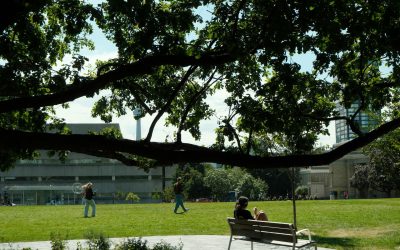Agroecology is not just a concept, it is a pathway to sustainability, resilience, and social innovation. At CESIE, we believe in the power of agroecological and climate smart practices to transform food systems and build stronger connections between people, knowledge, and the environment.
From enhancing biodiversity in the fields to redesigning education and governance models, agroecology offers a comprehensive approach to rethinking how we grow and consume food, as well as our relation to the land. Sicily is embracing this approach, with the recent regional law on agroecology marking a key step toward environmentally and socially sustainable agriculture.
In this context, it was important for CESIE to participate in the first International Congress of Mediterranean Agroecology (AEMED) 2025. From 9 to 12 June in Agrigento, Sicily, we brought the voices, tools, and insights of agroecological initiatives – from practical case studies to applied research projects – at the intersection of research, education, and climate action.
ClearClimate: climate services for agroecological farming
How can climate information services (CIS) support agroecological transitions?
Through the ClearClimate project, we explore how tailored climate services can support farmers’ decision-making while staying true to agroecological principles.
At the AEMED 2025, we presented a poster illustrating a novel theoretical framework for agroecology-based CIS. This framework integrates agroecological knowledge and the tools needed for its co-production and transmission, paying particular attention to user preferences and the power dynamics that often shape access to knowledge.
By aligning CIS with agroecological values, such as diversity, co-creation, and place-based approaches, this research proposes a transformative strategy for climate adaptation in Mediterranean agroecosystems.
To learn more about ClearClimate, visit: https://cesie.org/en/project/clearclimate/
EVECSA: skills and education for Climate-Smart Agriculture
What are the required skills to foster the transition toward more sustainable, resilient farming systems?
We shared the latest EVECSA report with the AEMED participants, presenting the findings of the comparative analysis we conducted across six European countries to study skills and training needs, resources and attitudes in the field of Climate-Smart Agriculture (CSA), with a particular focus on Vocational Education & Training (VET).
The research identified agroecology as a relevant and inspiring framework, resonating strongly with the values, practices and sustainability goals promoted by CSA. By bridging education and practice, EVECSA supports the design of learning pathways that respond to current environmental, economic and social needs.
Read the full report: Overview of needs, resources and competence profiles in Climate Smart Agriculture: https://climatesmart4agri.eu/2025/04/08/integrating-education-research-and-business-to-drive-sustainable-agriculture/
To learn more about EVECSA, visit: https://cesie.org/en/project/evecsa
SEEDS: integrating agroecology in Vocational Education & Training programmes
How can we foster the transformation of food systems?
Agroecology, with its recognition of the complexity of soils, crops, people, climates, food cultures and traditions, as well as knowledge systems, stands out as the most comprehensive approach to guiding this transformation toward long-term sustainability. However, there still exist significant gaps in knowledge and skills, not only among secondary school and university students and farmers, but also among educators themselves.
Funded by the Italian Ministry of Agriculture, Food Sovereignty and Forests, the riflAEssi project was recently launched to address, among other challenges, such educational and training gaps – which were also recognised by leading agroecology experts from across the Mediterranean at AEMED 2025.
With SEEDS, we further work to enhance agroecological competencies within vocational education & training; the project aims to strengthen the skills of teachers and trainers by providing a dedicated training programme and developing a curriculum on agroecology. Combining theoretical and practical content, the curriculum will be tailored to local needs and developed using a participatory approach with farmers, citizens, and local institutions. In a second phase of the project, educators will deliver the content directly in the classroom, and agroecological practices will be designed and implemented with and for the students.
To learn more about SEEDS, visit: https://cesie.org/en/project/seeds-vet/
Across different projects and perspectives, one thing is clear: agroecology has become a powerful lens through which to rethink how we produce, educate, and collaborate in agriculture.
As we join this international dialogue, CESIE looks forward to continuing to share its experiences and learning from the diverse and inspiring voices shaping the future of agroecology in Europe and beyond.









